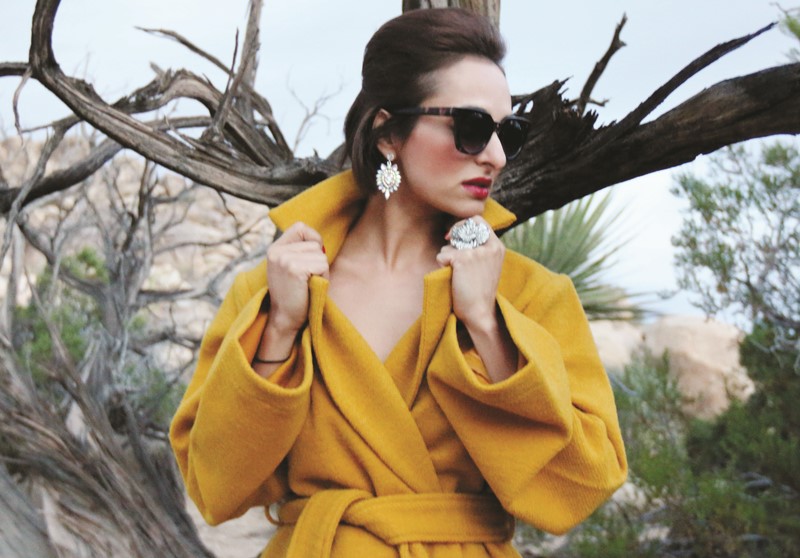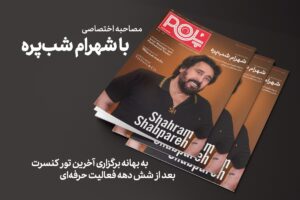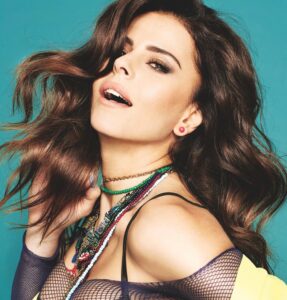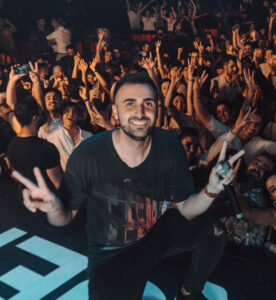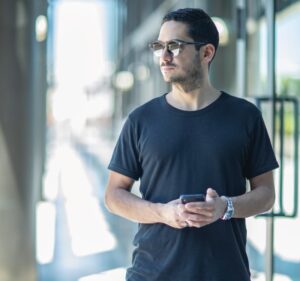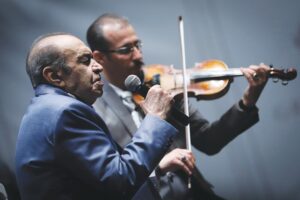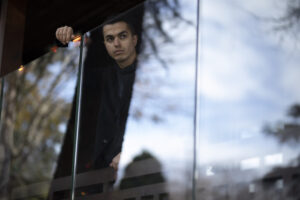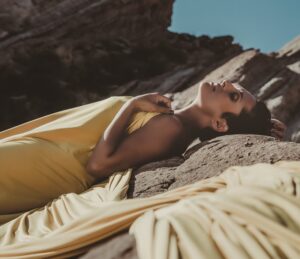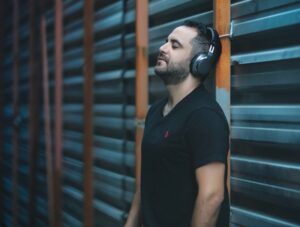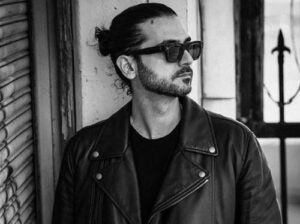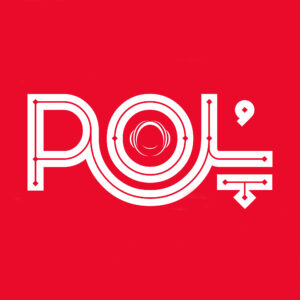Without any exaggeration, there are many Iranian singers in the world who have the potential for globalization or have taken important steps in the way of introducing their work to the world. One of The Iranian women singer, who is very happy with her music and voice, is Rana Mansour. Rana is born in an Iranian family in the 1960s in the United States in Virginia. Multi cultural children , if they are smart enough and talented, can use the potential of clashes between cultures and bring novel things to the world. Rana is a good example of this. Her works have caught the attention of new Iranian audience, as if the Iranianmusic market has found the lost missing piece, called Rana Mansoor. She can recreate every old piece of familiar songs to that extend which new value is added to the song. Rana will come to Istanbul for the Iranians new year to perform a Concert. We went to her, and she also answered our questions kindly.
Since childhood, you have been enthusiastic about music and you’ve been studied music, you’re actually a specialist in your career. Considering the newness of your style, do you think how far you can go in the market of Persian music?
There is no limitation to where we can take Persian contemporary music as long as we learn and continue to connect with other people and cultures. Music is a universal language, it belongs to all of us, and the more people we can reach the better. I don’t know what the future holds for us, all I know is that I personally have to make the music that is in my soul, and to be as authentic as possible. I am so happy to see and hear that I’m making a difference and that my work is getting recognition.
You have grown up with Iranian music, who has inspired you the most ,among Iranian singers? Who do you like most?
I have been inspired by many Persian artists of various genres, especially those who have left us like Hayedeh, Delkash, Simin Ghanem, Farhad… but I would like to thank our current legends such as Ebi, Dariush, and Faramarz Aslani who are supportive of the younger generation artists like myself.
Who inspired you among the foreign singers? Which one is closer to your own style?
Michael Jackson, MADONNA, Lionel Richie, Sade, Lady Gaga, Alicia Keys, Chopin, Beethoven, Mozart, Debussy, Ella Fitzgerald, Miles Davis, Phil Collins, Sting, Elton John, Billy Joel, Bryan Adams, and MANY MANY MORE! I love all of these artists and have been influenced by them, but I wouldn’t trade my style to anyone else’s because it is unique and unlike anything anyone has ever done.
You also write songs, have you written any song for another artists?
Yes, I once did a collaboration with Warner-Chappell which is a major label publishing company. I originally wrote the song for myself, but another singer on their label wanted it, so I gave it to her.
What is your opinion about the artists who work inside Iran?
At the moment, I don’t have the time to focus on other artists, but I will say that I have a general love for all of them regardless of their style, and I wish them all success.
You have sung in 9 different languages, This is great. How difficult is to sing in foreign languages. Do you think you are successful in attracting other native people?
It’s actually 10 languages, you forgot about Sign Language J When a person hears a song in their language, and the artist is not from their country, the listener will immediately respond positively because they will feel proud and as if they had something to do with the song. They will feel connected, and that is always a good thing.
How did your family support you in your path to growth? Were you initially interested in music or they encouraged you? My mother and father have been supportive since childhood in many ways, but the burdens of this musical journey have always fallen on me alone.
Tell us about the experience of study at Berklee College of Music in Boston , Do you think that education is necessary for professional development, or good results can be achieved through experience in music? My years at Berklee College of Music as a scholarship student were some of the best years of my life. I learned so much, both on a technical and personal level. I made life-long friends, and it was a good introduction to my career. Berklee is one of the best music schools in the country, with some of the best teachers and facilities in the world. We had 24/7 access to professional and up-to-date recording studios and computer labs, and our library had scores of music I couldn’t find anywhere else, not to mention all the celebrities who attended the school. But it is important that I mention that you don’t necessarily need to go to Berklee or any other well-known institution in order to become a great musician; the most important things are discipline, focus, and determination. And of course, practice makes perfect.
You will come to Istanbul in April. Tell us about this event and being with Iranians. What are the details of the concert?What songs will you play? Istanbul will be my first concert in that region of the world, and I am very excited about it. To be honest, I have no idea what to expect, but I will tell you I am really looking forward to hearing my hit songs for my fans – songs like Taghase Eshgh, Faryade Kohneh, Mordab Tanhai, and more. We have a few surprises planned for the evening, and even though I can’t go into detail what will happen, I will say that it will definitely be a very memorable and FUN show!
What will lead Rana Mansour in her path? Well, of course I initially pursued music because it made me happy. My earliest and most fondest memories as a child are of music. But once I graduated college and entered the “real world”, life became more complicated, and I had to make a living. I began to witness and experience first-hand many of the injustices and unfairness of the record industry. For these reasons, I chose to become and independent artist and educate myself about how to operate as my own label, management, and production company. Once I began my career in the Persian music market, I experienced a completely different world of how things were done, and I believe that many of our industry standards have been dominated by cultural reasons. Now that I am no longer a child, my reasons for pursuing music have become much deeper than simply enjoying and loving it – it has now become more of a humanitarian and educational mission.
What is the biggest challenge in making songs for the Persian language market? Is It more difficult to work with Iranian market or the American market? The culture and the language, since I was born in the USA. Both. In general, pursuing a full-time career in the arts has its challenges, regardless of the culture or language.
At the ceremony (half a century with Ebi), you performed the old songs with your own style and you were welcomed. You have a new look to each song. Where does this look come from? Are you trying to personalize the works? I am very excited that my performance there had a great feedback,i cannot explain in words – if the music speaks to me and inspires me, I will put my signature on it.
Have you ever travelled to Iran? What do you feel about it? . I haven’t been to Iran yet as I was born in America, but I love Iranian culture and my people. I would love to visit Iran when some of the laws regarding women have changed.
You have created lasting songs like “woman”. Would you like to talk about defending women’s rights to our audience? What do you think is the biggest challenge on this subject? . I don’t really like labels, so I first want to say that I support all human and animal rights. Even I am a vegetarian, and I don’t believe in any manufacturing of anything that has to do with the hurting of animals! I sang ZAN because those lyrics needed to be heard at this time. There are also many men who support this movement and message, so we cannot forget about them or allow them to feel unimportant or unheard. Being a woman in this industry definitely has its own challenges, and I am so thankful and grateful to see that I have inspired other Iranian and non-Iranian female artists to share and speak up about their experiences. But we need to be careful and not move too quickly – women can be very powerful, and I believe we cannot achieve our ultimate goal unless we do it very carefully. The very least we can do is continue to support each other and love everyone and everything unconditionally. We simply cannot allow history to repeat itself, so we must be very cautious.
What music does Rana listen to during the day? . When I’m not practicing, writing, or recording my own songs, I love to get inspiration and ideas from new artists. Lately I have been on Spotify because it’s a great platform to get introduced to artists I’ve never heard of before. I usually play the playlists where I know I won’t know many of the artists because I want to get introduced to as much new music as possible.
Have you ever thought of the source of all the feelings that you have played? Where does this love come from? I get my energy from my fans. There’s nothing like being on that stage and watching my family – as I like to call them – singing along, crying, laughing, connecting. And I give back every ounce of energy back because after each show I am so exhausted physically, mentally, and emotionally that I need to rest for a few days after.
Which one of your music do you like most?I always look forward to my upcoming work because I feel that with each song or project, I improve more and more. But songs like ZAN and Faryade Kohneh have given people a lot of hope and even saved a few lives, so those types of songs are always so very special and close to my heart.
Do fans need to wait for new songs? Yes, I have A LOT of new music coming very soon!

